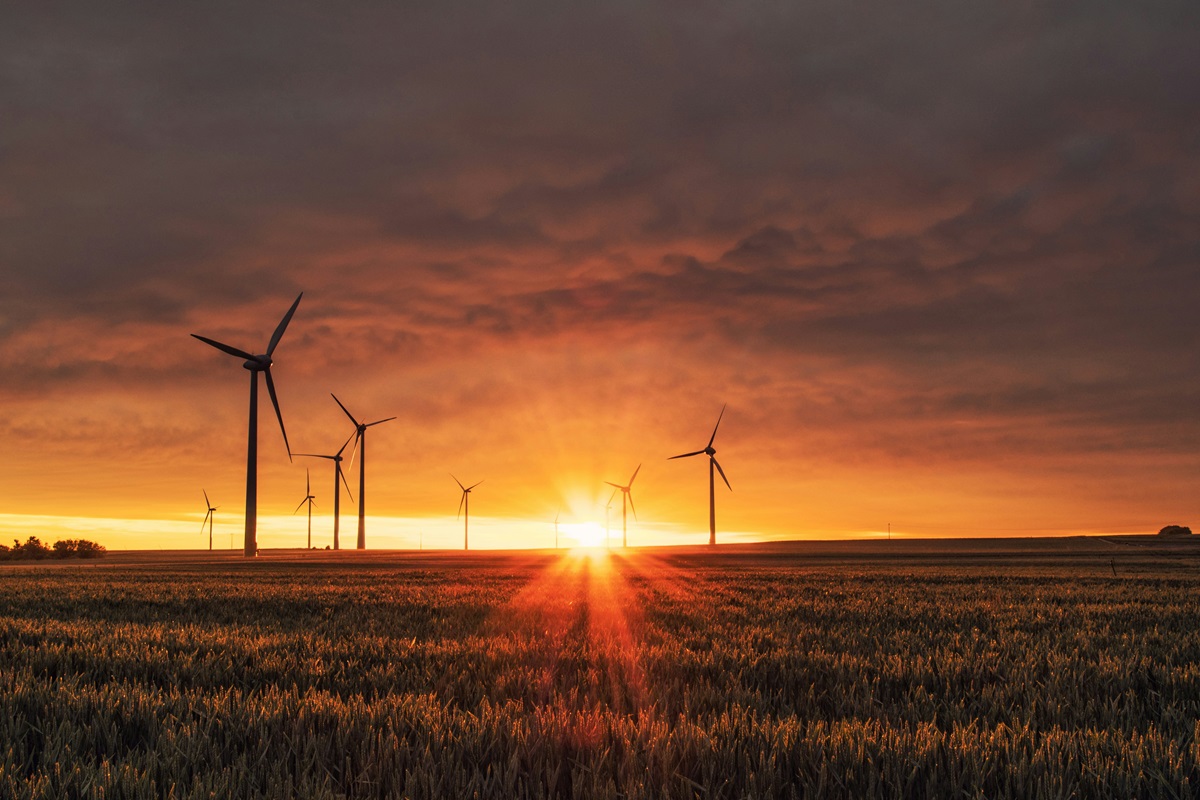:quality(80)/cloudfront-us-east-1.images.arcpublishing.com/morningstar/2LP7U4OXYVCPTOW5ABPSYWP4OI.png)
Sustainable funds are expected to own companies that fit various environmental, social, or governance criteria or provide solutions to society’s sustainability challenges. Yet, the line often can feel blurred between what types of companies are found in a traditional fund compared with a fund that takes explicit ESG approaches.
We compared a variety of portfolios and found three stocks that U.S. large-cap ESG funds own at much higher exposures than their traditional counterparts: Microsoft MSFT, Nvidia NVDA, and Intuit INTU. Additionally, there were three companies not widely held in traditional funds: Trane Technologies TT, Ecolab ECL, and Aptiv APTV. We include our assessments below from Morningstar analysts as well as from Morningstar Sustainalytics, a Morningstar company that provides ESG data and solutions.
Generally, sustainable equity funds approach portfolio construction much the same as traditional fund managers, by searching for quality investments with long-term capital appreciation prospects and unique risk and return characteristics. Like all funds, these sustainable equity managers seek to outperform their benchmarks, minimize risk, and protect and expand their portfolios.
On top of that, sustainable funds also use ESG data and metrics to pursue their objectives. These approaches can vary. One approach might be excluding investments based on moral values. Others include limiting ESG risk, seeking ESG opportunities, or targeting sustainability themes. (For a full list, please check out the Morningstar Sustainable-Investing Framework.) Despite headwinds from the anti-ESG movement, sustainability experts say that ESG investing has become more mainstream as an additional layer of insight to inform financial decisions.
As you might expect, there is also evidence of differing strategies when you analyze the distribution of weights among the holdings of both types of funds. Here’s what we did to compare the funds.
Our Methodology
For large-cap ESG funds, we aggregated the holdings of the oldest share classes of all U.S. sustainable large-cap funds. We took the 200 securities that were most commonly owned and then calculated what the average weight of each stock might be in a theoretical portfolio that owned all 200 stocks. Each stock’s weight in the model was determined by taking its average weight and dividing it by the sum of the top 200 stocks’ average weights in the sustainable universe. As an example, if Microsoft had an average weight across the universe of 15%, and the sum of the 200 highest average weighted securities in the universe was 350%, Microsoft would have a model weight of 4.3%. This process for model creation was then repeated for the “traditional universe.” The traditional universe was defined for large-cap funds as the oldest share classes of U.S. large-cap funds, excluding sustainable funds.
Our objective is to gain insights into the unique or underweight securities held by sustainable funds in the large-, mid-, and small-cap universes. Securities in the sustainable model that hold a greater position than the traditional model are considered “overweight” in this study. “Unique” securities are those that are included in the sustainable model but not the traditional model.
What ESG Stocks Did We Find?
Apart from Meta Platforms META, the mega-cap companies known as the “Magnificent Seven” make a noticeable appearance among the securities in our model with the highest average weight. Except for Amazon.com AMZN and Alphabet GOOGL, these market-cap giants (which also include Apple AAPL, Microsoft, Nvidia, and Tesla) are overweight in the sustainable model as compared with the traditional model. Why so much overlap?
The explanation lies in tracking error, a measure of volatility between a fund and its index.
“Most sustainable large-blend funds still aim to be suitable as core portfolio holdings, meaning that their performance should be similar to large-blend benchmarks,” says Alyssa Stankiewicz, Morningstar’s associate director for sustainability research. “To fully exclude a name such as Microsoft or Apple, which are large portions of the market, an ESG-focused fund would be courting significant performance differences compared with traditional benchmarks.”
Thus, it’s common for active ESG-focused portfolio managers to hold slightly more or slightly less in a given name. In the example above, Microsoft has a slightly higher weighting in our model compared with the Morningstar US Large Cap Index, which makes sense given Microsoft’s relatively good standing on ESG matters compared with industry peers, corresponding to a Morningstar ESG Risk Rating Assessment of Low.
Most Overweight Stocks
Microsoft and Nvidia make another appearance on a shortlist of the top three most overweight securities in ESG funds. Rounding out the trio is Intuit, a provider of small-business accounting software (QuickBooks), personal tax solutions (TurboTax), and professional tax offerings (Lacerte).
Trane Technologies, Ecolab, and Aptiv are the three highest-weighted securities in the sustainable model that were not held by the traditional model at all. Other “unique” investments include industrial automation company Rockwell Automation ROK, water technology provider Xylem XYL, and American Water Works AWK, the largest investor-owned U.S. water and wastewater utility.
Below, we look at these three securities and include comments from Morningstar that describe the investment theses, as well as comments from Morningstar Sustainalytics about ESG risk.
Trane Technologies
Morningstar Rating: 1 star
Morningstar Economic Moat Rating: Narrow
Morningstar ESG Risk Rating Assessment: 4 globes
Price/Fair Value: 1.39
“Trane Technologies manufactures and services commercial and residential HVAC systems and transportation refrigeration solutions. While the firm is domiciled in Ireland, North America accounts for over 70% of its revenue.
“We have a positive long-term outlook for Trane’s growth prospects, driven by what we see as secular global trends in urbanization, energy efficiency, and healthful building solutions (for example, indoor air quality). We expect the normalizing North American residential HVAC market (after a period of exceptional demand during the pandemic) will be a growth headwind for Trane over 2023-24.”
—Brian Bernard, Morningstar sector director
“Trane Technology’s overall exposure to ESG risks is medium; heating, ventilation, and air conditioning systems face rising scrutiny over their efficiency as they are responsible for about a fifth of total electricity usage in buildings worldwide. Moreover, hydrofluorocarbons released in production contribute to the depletion of the ozone layer.
“The company’s overall management of material ESG issues is strong. Trane describes itself as a ‘leader in climate and sustainability,’ and its management of environmental risks largely aligns with this claim. The company has established several targets and programs to reduce the emissions created from its operations and products, such as its plan to phase out refrigerants with high global warming potential by 2030. The company also commits to making its products more sustainable through reducing the carbon dioxide footprint of its customers and sourcing its input material sustainably.”
—Morningstar Sustainalytics
Ecolab
Morningstar Rating: 4 stars
Morningstar Economic Moat Rating: Wide
Morningstar ESG Risk Rating Assessment: 4 globes
Price/Fair Value: 0.88
“Ecolab produces and markets cleaning and sanitation products for the hospitality, healthcare, and industrial markets. The firm is the global market share leader in this category with a wide array of products and services, including dish and laundry washing systems, pest control, and infection control products. With unmatched scale and a solid ‘razor and blades’ business model, Ecolab’s competitive advantages are firmly in place.”
—Seth Goldstein, Morningstar strategist
“Ecolab’s board-level safety, health, and environment committee has direct responsibility for the company’s ESG strategy. Overall, Ecolab is focused both on reducing the environmental impact of its direct operations and of its products. As such, the company reports waste as a priority material issue and is committed to managing its waste disposal with importance being placed on the minimization of overall waste produced.”
—Morningstar Sustainalytics
Aptiv
Morningstar Rating: 5 stars
Morningstar Economic Moat Rating: Narrow
Morningstar ESG Risk Rating Assessment: 4 globes
Price/Fair Value: 0.52
Another Irish-domiciled company, “Aptiv provides automakers with components and systems that are in high demand from consumers and that government regulation requires to be installed. Aptiv’s high-growth technologies include advanced driver-assist systems, autonomous driving, connectivity, data services, and high-voltage electrical distribution systems for hybrids and battery electric vehicles.
“In our opinion, Aptiv’s ability to regularly innovate and commercialize new technologies bolsters sales growth, margin, and return on investment. A global manufacturing presence enables Aptiv to serve customers around the world, capitalizing on the economies of scale inherent in automakers’ plans to use more common vehicle platforms. Lean manufacturing discipline and a low-cost country footprint enable more favorable operating leverage as volume increases.”
—Richard Hilgert, Morningstar senior analyst
“Aptiv reports adequate ESG policies and programs. It appears to integrate eco-design into its product manufacturing to satisfy the rising demand for more connected, lightweight, and energy-efficient products in the car industry. In 2021, Aptiv’s revenue from products designed to increase fuel efficiency and/or reduce emissions accounted for 74% of the total. With 18,900 scientists, engineers, and technicians in 2021, Aptiv capitalizes on its technical, highly skilled labor and invests in research and development in cooperation with its clients and government agencies.”
—Morningstar Sustainalytics





.jpg)
















